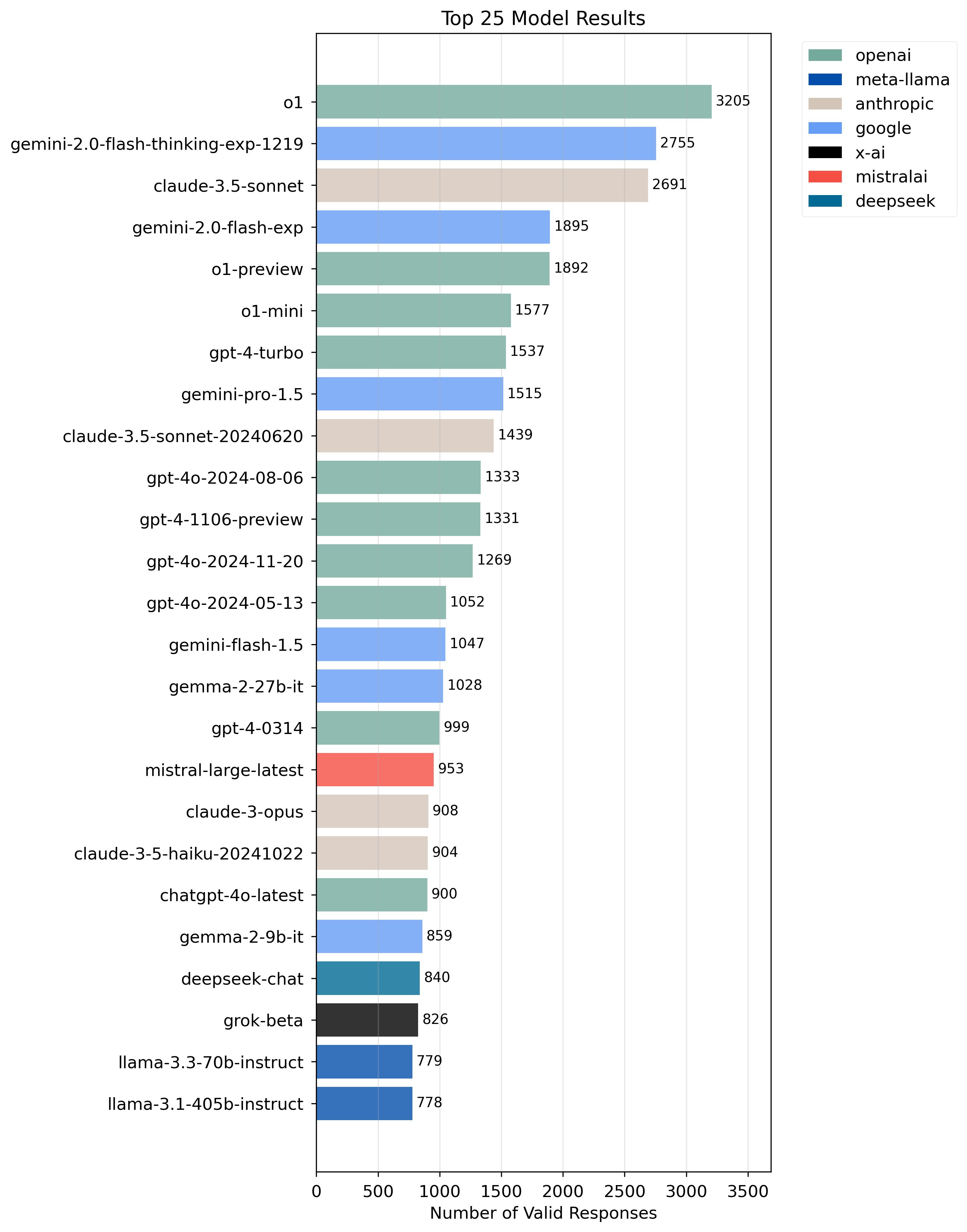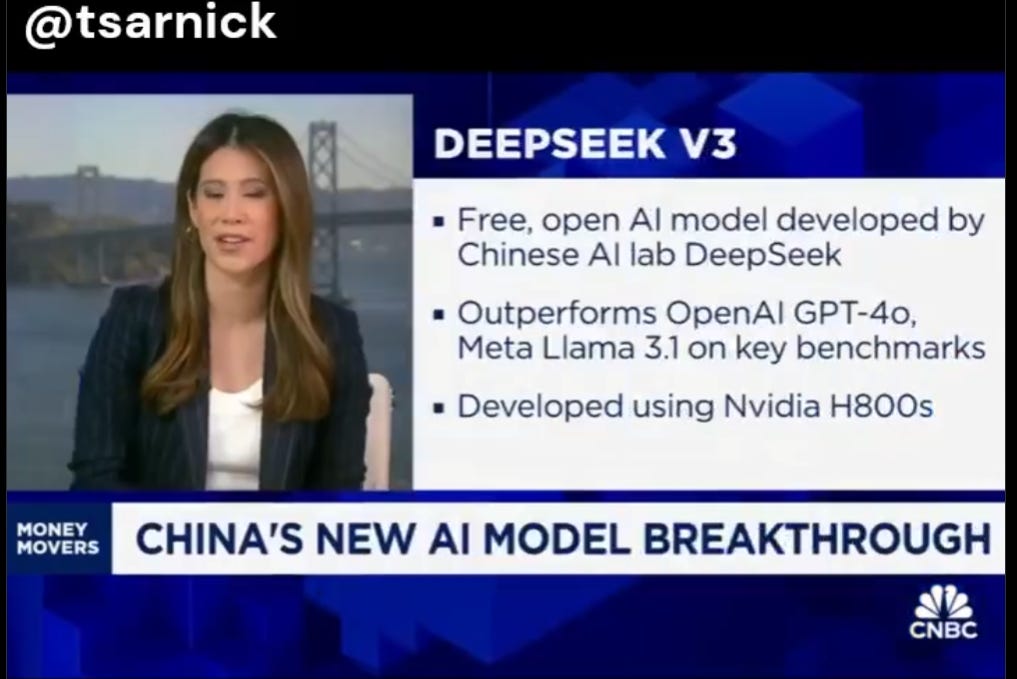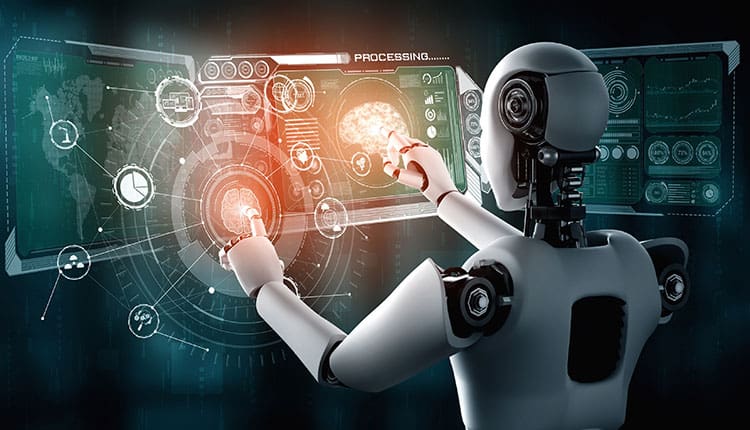
Tnairecruitment
FollowOverview
-
Founded Date noviembre 3, 1930
-
Sectors Enfermería
-
Posted Jobs 0
-
Viewed 30
Company Description
What is Artificial General Intelligence: A 2025 Beginner’s Guide

We may generate income when you click on links to our partners. Discover more.

What is artificial basic intelligence (AGI), and why does it matter? As one of the most talked-about subjects in innovation today, it has actually triggered a race amongst top companies like OpenAI and Google to turn this advanced idea into reality. Understanding AGI is crucial since it has the possible to revamp markets, affect our society in profound methods, and change the way we connect with innovation. Here’s what you need to learn about what it might be able to do, how it might change markets and fields, and the significant difficulties facing its development.
KEY TAKEAWAYS
• AGI varies from traditional AI in key methods in that it would be able to believe, find out on its own, and adapt to brand-new obstacles like people unlike conventional AI, which is created for specialized jobs and operates within a restricted scope. It needs humans to update and refine abilities. (Jump to Section).
• Once it comes true, AGI would have the ability to make impressive advances in numerous fields, consisting of healthcare, research study, and financing sectors. (Jump to Section).
• Creating AGI is hard due to the research challenges that consist of technical, ethical, and societal problems. Addressing these challenges is main to maintaining the safe and favorable advancement of this technology. (Jump to Section)
Featured Partners: Artificial Intelligence Software
Discover more
TABLE OF CONTENTS
What is Artificial General Intelligence (AGI): A Clear Definition.
Understanding AGI vs Traditional AI.
Potential Applications of Artificial General Intelligence.
Challenges in Artificial General Intelligence Research.
3 Introductory AGI Courses to Consider.
Frequently Asked Questions (FAQs).
Bottom Line: Why Knowing What Is Artificial General Intelligence Matters.
What is Artificial General Intelligence (AGI): A Clear Definition
Artificial basic intelligence, or AGI, refers to a kind of expert system (AI) that can interpret, find out, and carry out any cognitive job that a human can do. Unlike today’s AI, which is built to deal with specific tasks like suggesting products or processing information, AGI would have the ability to adjust to brand-new obstacles and apply understanding throughout different fields. To put it simply, this innovative type of AI would believe and reason like a human. While AGI holds excellent prospective, it’s worth noting that it is still an idea today, with no fully established systems available yet.
Key Capabilities of Artificial General Intelligence
AGI would have a variety of capabilities that imitate human intellectual functions, so it can perform tasks beyond the narrow focus of the present AI tools in the market. Some crucial capabilities consist of the following:
Human-Like Reasoning: The innovation would have the ability to understand and make decisions the method people do. It would think critically, solve problems, and develop services based upon its own experiences and past interactions, comparable to how we use past knowledge to brand-new situations.
Solving Unfamiliar Problems: One of AGI’s strengths is its possible to tackle brand-new issues. Unlike standard AI, which is trained to perform particular tasks, AGI would have the capability to deal with problems it hasn’t been directly trained to fix. It might determine how to approach an entirely brand-new obstacle, simply like humans do when faced with something we have actually never experienced before.
Self-Learning and Adapting: AGI might tweak its abilities and gain from experience, without the requirement to be manually updated every time. It would observe and analyze data, gain from mistakes, and discover much better methods to complete tasks with time. This means AGI might adapt to new situations and get much better at tasks by itself.
Using Knowledge Across Different Areas: AGI would have the ability to take what it finds out in one area and use it to other jobs. For example, if it found out how to fix math issues, it could use that understanding to resolve difficulties in other fields, like science or organization. The capability to move abilities across different areas is something humans do naturally and would make the technology versatile in diverse sectors.
Understanding and Responding to Emotions: Recognizing and reacting to human feelings would also be within AGI’s abilities. This would be very important in settings where understanding people’s sensations matters, such as healthcare, customer support, or social scenarios. By reacting to feelings appropriately, AGI would be better equipped to deal with human beings in a reliable method.

Understanding AGI vs Traditional AI
The table listed below supplies a picture of the significant differences in between AI and conventional or narrow AI by underscoring their abilities, adaptability, and present status.
AGI would have the capability to think, discover autonomously, and adjust to brand-new obstacles like human beings. However, it is still theoretical and has actually not been recognized yet. On the other hand, conventional AI is built for particular tasks and runs within a repaired scope. It can not change to new jobs without human input.

For instance, an AGI could discover to diagnose medical conditions, valetinowiki.racing then utilize that understanding to develop personalized treatment plans-and even change its approach based upon the client’s development. Additionally, it could apply this analytical ability to jobs in entirely different fields, such as producing organization methods or advising on ecological preservation. On the other hand, conventional AI, like a diagnostic tool, can just analyze medical data for particular conditions. It can not adjust to other locations or improve on its own.
Potential Applications of Artificial General Intelligence
While AGI isn’t here yet, its prospective applications cover many fields and hold excellent promise of drastic developments in numerous sectors. Without being restricted to specific tasks like narrow AI, AGI would be extremely versatile and could use its capabilities to solve multi-disciplinary issues. It could conquer challenges presently beyond the capabilities of existing AI applications.
Transforming Healthcare
AGI would change the game in health care by identifying complex and uncommon illness with greater accuracy, even in cases where symptoms are ambiguous or overlap with numerous conditions. It might produce highly individualized treatment strategies by studying client history, hereditary details, and real-time health data. In addition, AGI could speed up drug discovery, recognizing possible treatments in weeks instead of years by processing massive datasets and running predictive simulations.
Advancing Scientific Research
In clinical research, AGI would be able to simulate experiments, examine intricate datasets, and create hypotheses. It could expedite developments in quantum physics, genomics, and environment science. By integrating knowledge from numerous domains, the innovation might reveal connections and services that may otherwise go undetected by conventional AI.
Improving Industry
Organizations in the industrial field could utilize AGI to boost effectiveness in real-time by handling whole supply chains. It would anticipate and resolve disruptions before they occur. In production, it could supervise self-governing factories, enhancing production processes while maintaining safety and quality requirements. Its ability to adapt to changing circumstances would make it an invaluable tool in commercial environments.
Enhancing Business Strategy
AGI might improve service decision-making by examining market trends, consumer behavior, and functional data to find chances and threats. In contrast to narrow AI systems, AGI would innovate solutions to tough service problems, such as handling financial uncertainty or forecasting long-term market shifts. Its ability to discover from varied sources would empower companies to stay competitive.
Redefining Finance
In the monetary sector, AGI might increase forecasting accuracy by detecting patterns in vast amounts of monetary information, so financiers and humanlove.stream institutions can make educated decisions. It would also have the ability to spot scams in real-time by acknowledging subtle abnormalities that traditional AI systems might miss. Additionally, AGI could develop more robust monetary designs, factoring in complicated variables and situations to alleviate threats.
Challenges in Artificial General Intelligence Research
Developing AGI is one of the most enthusiastic goals in technology, however it includes many troubles. These challenges consist of technical, ethical, and social locations, making AGI advancement an intricate and multi-faceted process. Overcoming the following challenges amounts making sure security, maintaining ethical standards, and thoroughly planning how AGI’s intro and use will impact people, industries, and society as a whole:
Making AGI Truly Flexible: AGI would need to handle a wide variety of issues and adapt to new scenarios, similar to people. Building a system of versatility is exceptionally difficult because present AI tools are not created to believe or learn at this level of sophistication.
Massive Computing Needs: To duplicate human intelligence, AGI would need huge quantities of computing power to process details from varied sources quickly. Finding out how to make such systems powerful and efficient enough for real-world use is a considerable challenge.
Understanding Human Intelligence: We do not totally comprehend how human thinking works, specifically complicated aspects like instinct or consciousness. Without this understanding, it’s challenging to build makers that can replicate human-like thinking.
Making AGI Safe and Ethical: AGI might possibly be misused, like to develop prejudiced systems or harmful tools like autonomous weapons. Researchers should ensure that AG is constructed properly and follows rigorous ethical guidelines. This is a tricky job that requires worldwide partnership.
Keeping It Under Control: There’s a risk AGI could act in ways we don’t expect, specifically given that it would have the capacity to discover and change over time. Ensuring that these systems stay lined up with human values and are safe to use is one of the most significant obstacles in AGI research study.
Effect on Jobs and Society: If AGI comes true, it might change tasks or cause financial inequality by benefitting some groups more than others. Getting ready for these social effects is simply as important as building the itself.
High Costs and Resources: Researching AGI requires a great deal of money, time, and professional knowledge. Not all companies have these resources, decreasing development and leaving smaller businesses out of the race.
3 Introductory AGI Courses to Consider
Familiarizing yourself with AGI can offer you a competitive edge, whether you want to advance your profession in AI or just want to stay notified about emerging technologies. The following introductory courses can help you get a deeper understanding of what artificial basic intelligence is, so you can strengthen your understanding about this appealing AI improvement.
Artificial General Intelligence (AGI): An Initial Course on Udemy
This Udemy course offers a basic understanding of AGI, appropriate for novices with no prior experience. The course covers appropriate subjects, consisting of the structures of AI, the basics of AGI, and the current trends in the field. It also explores the advantages, dangers, and obstacles associated with AGI, equipping you with insights into what the sophisticated innovation can achieve. The entire course includes 15 lectures and can be completed in approximately 45 minutes. Upon completion, you will receive a certificate to strengthen your credentials in the task market. This initial course costs $24.99.
Intro to Artificial General Intelligence (AGI): Future of AI on Udemy
Udemy’s introductory course provides a detailed overview of AGI for students with no technical background. It discusses the historical context and structure of AGI, the distinctions in between narrow AI and AGI, and ethical factors to consider surrounding its advancement. In addition, it attends to future patterns in AI and AGI, clarifying the difficulties and opportunities that lie ahead. Spanning one hour and 46 minutes, the course consists of 39 lectures, on-demand video, and downloadable resources. It likewise has a practical test at the end to enhance your understanding. You will be awarded a certificate once you finish the course. It is offered as part of Udemy’s premium strategies, starting at $20 monthly, or as a separate purchase of $49.99.
Artificial General Intelligence (AGI) on Udemy
This Udemy course brings a clear and succinct introduction to the topic, with on-demand videos and 22 lectures. It elaborates on major AGI concepts and the role of robotics in AGI advancement. It also examines the ethical, software application, and hardware challenges in producing AGI. The course supplies quizzes to test your knowledge and a certificate of completion. Priced at $44.99, it is made for students at any level, making it accessible and valuable for anybody who wants to find out more about AGI.
Frequently Asked Questions (FAQs)
Achieving AGI could transform industries, enhance decision-making, and lead to considerable advancements in innovation. However, it likewise raises concerns about ethics, job displacement, and the need for correct policy to ensure it is developed safely and properly.
Experts disagree on how far we are from attaining AGI. Sam Altlman of OpenAI believes in 2025, AI agents might join the workforce, ultimately leading the way to AGI advancement. On the other hand, a survey of AI researchers puts the typical price quote around 2047. Despite rapid AI advancements, existing systems are still limited to narrow tasks and lack the broad, versatile reasoning of humans-so AGI is most likely still years away.
The concept of AGI fully changing human beings is still disputed. Despite the fact that it’s likely that AGI will assist us by taking control of recurring tasks, there is a possibility that it might displace certain jobs. That said, rather than totally replacing humans, AGI is anticipated to work along with us, dealing with technical obligations while we concentrate on tasks that need creativity and empathy. At the end of the day, the impacts of AGI will depend on how society chooses to manage and incorporate it.

Bottom Line: Why Knowing What Is Artificial General Intelligence Matters
Understanding synthetic basic intelligence is important due to the fact that this technology might change industries, fix difficult problems, and transform how we utilize AI. But as we begin to develop AGI, we should carefully attend to a number of obstacles, including technical concerns, ethical issues, and its total impact on society. By finding out about AGI’s potential and risks, we can work towards ensuring it is developed properly and utilized in manner ins which would benefit everyone.

